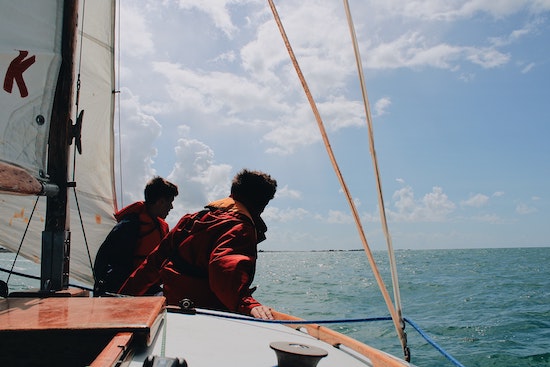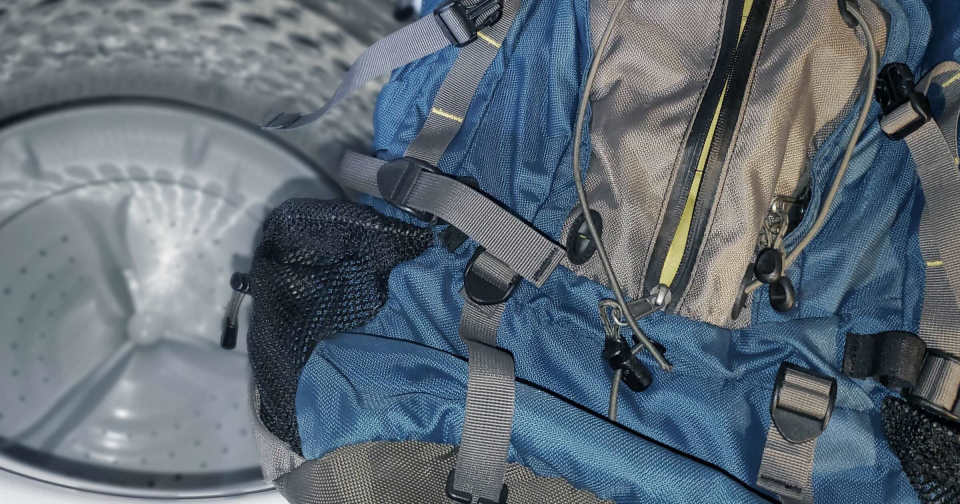Ahoy, fellow adventurers! As you gaze out at the vast ocean expanse, the allure of sailing the open waters and embarking on a journey around the world may hold an irresistible appeal. But before setting sail, it’s important to sail with confidence and knowledge of proper licensing requirements. We will explore the pertinent questions surrounding licenses for sailing, including whether you need one to sail a boat, to embark on a global adventure, and the qualifications required for sailing in the United States. So, hop aboard as we chart our course through the sea of knowledge and uncover the essentials of sailing licensing regulations.
Introduction

Sailing is a popular recreational activity that allows people to enjoy the freedom of the open water. Whether you want to take a leisurely cruise on a sunny day or embark on an incredible journey around the world, the question of whether you need a license to sail a boat often comes up. Let’s explore the regulations and requirements for sailing enthusiasts.
In the United States, the need for a license to sail a boat largely depends on the size of the vessel and its intended use. For small recreational boats, such as sailboats and motorboats, there is no federal requirement for obtaining a license. However, individual states may have their own regulations in place, so it’s essential to research and comply with the specific rules of the area where you plan to sail.
If you wish to sail around the world, the requirements vary depending on your nationality and the country you are registered in. Some countries, such as the United Kingdom, have a licensing system in place for offshore sailing, while others, like the United States, do not have a specific license for ocean voyages. It is advisable to check with the appropriate authorities of your home country and the countries you plan to visit to understand their regulations and comply with any necessary requirements.
- If you are planning to sail in international waters, it is essential to familiarize yourself with international maritime laws and regulations such as the International Regulations for Preventing Collisions at Sea (COLREGS). These regulations govern the behavior of vessels at sea and ensure safety and smooth navigation for all boaters.
- Additionally, it is highly recommended to obtain the necessary training and certifications to enhance your skills and knowledge of sailing. Various sailing organizations offer courses and certifications that can not only improve your sailing abilities but also ensure your safety and the safety of others on the water.
- Moreover, many insurance companies require a certain level of training and experience before they provide coverage for your boat. Obtaining certifications from recognized sailing institutions can help you meet these requirements.
Do You Need a Boating License to Sail Around the World?

Do you dream of embarking on a thrilling adventure around the world on a sailboat? The thought of exploring stunning coastlines, experiencing different cultures, and challenging yourself in the open seas is undoubtedly exciting. But before you set sail on your global voyage, it’s essential to understand the requirements and regulations concerning boating licenses. We will delve into the question: Do you need a boating license to sail around the world?
To answer this question, it’s crucial to consider that regulations regarding boating licenses vary from country to country. While some countries may require a license for boating in general, others may have specific requirements for those planning to sail internationally. Therefore, it’s essential to research the regulations of the countries you plan to visit during your world voyage.
If you are a resident of the United States and intend to sail around the world, you might be wondering about the requirements for a boating license. In the US, the regulations for boating licenses are determined at the state level. However, for international sailing, the US Coast Guard (USCG) issues a Certificate of Documentation, commonly known as the “Gross Tonnage Certificate.”
- This certificate is necessary for vessels that are at least five net tons and are used in foreign commerce or trade.
- While not specifically a “boating license,” this document confirms the ownership and nationality of the vessel and is required by many foreign countries when entering their ports.
- To obtain the Gross Tonnage Certificate from the USCG, you must meet specific requirements, including citizenship, vessel size, and ownership eligibility.
It’s worth noting that other countries may have their own requirements for boaters sailing within their borders or planning to visit their ports. These requirements can range from simple compliance with local laws to mandatory licensing or certifications. Therefore, before embarking on your world sailing journey, it’s crucial to thoroughly research the regulations and requirements of each country along your planned route.
Do You Need a Sailing License in The US?

Many people dream of taking to the open sea and exploring the world on a sailing adventure. But before setting sail, it’s important to understand the legal requirements for sailing in the United States. One common question that arises is whether a sailing license is required in the US. We will explore this question in depth to provide a clear answer.
When it comes to sailing in the US, the need for a license depends on various factors. Firstly, it’s important to differentiate between recreational and commercial sailing. If you plan on using your boat for personal use and not for any commercial purposes, you generally do not need a license to sail in US waters. However, it’s essential to keep in mind that different states may have their own specific regulations, so it’s always a good idea to familiarize yourself with the rules of the state where you plan to sail.
On the other hand, if you intend to use your boat for commercial purposes, such as offering sailing charters or providing sailing lessons, you will likely need to obtain a license or certification. The specific requirements for commercial sailing can vary depending on the size of the vessel, the number of passengers, and the type of activities involved. It’s crucial to research and comply with the regulations set by the United States Coast Guard (USCG) and other relevant authorities to ensure you are operating legally and safely.

If you are considering sailing in US waters and are unsure about the requirements, it’s advisable to reach out to the USCG for guidance. They can provide accurate and up-to-date information on the regulations and licensing requirements specific to your situation.
Additionally, even if a sailing license is not mandatory for recreational sailing, it’s highly recommended to undergo some form of sailing training or boating education. This will not only enhance your skills and confidence on the water but also prioritize safety for you and your crew. Many organizations offer sailing courses and certifications that can provide valuable knowledge and practical experience for both novice and experienced sailors.
| Benefits of Obtaining a Sailing License: |
|---|
| 1. Increased knowledge about sailing techniques and safety measures. |
| 2. Recognition of your competence and skills by potential employers or sailing charter companies. |
| 3. Access to advanced sailing courses and opportunities for personal growth. |
| 4. Enhanced confidence in handling various sailing situations and emergencies. |
What Qualifications Do I Need to Sail in The US?

To sail in the US, there are certain qualifications and licenses that you need to acquire. Whether you are a beginner or an experienced sailor, it is important to understand the requirements and regulations set by the US Coast Guard and other governing bodies. These qualifications ensure the safety of yourself, your crew, and other boaters on the water. We will explore the different qualifications you need to sail in the US.
The first thing you need to consider is whether you need a boating license in the US. Unlike some other countries, the US does not require a specific boating license for recreational boaters. However, individual states have their own regulations and may require you to complete a boating safety course. These courses are usually offered by the state’s Department of Natural Resources or the US Coast Guard Auxiliary. Even if your state does not require it, it is highly recommended to take a boating safety course to gain the necessary knowledge and skills.
In addition to a boating safety course, you may also need to obtain a certificate called the US Sailing Certification. This certification is not a legal requirement, but it adds credibility to your sailing skills and knowledge. US Sailing offers a range of certification programs, including Basic Keelboat, Coastal Cruising, Bareboat Cruising, and Offshore Passage Making. These programs include both classroom instruction and on-water training, giving you a comprehensive understanding of sailing techniques, navigation, and safety practices.
- Basic Keelboat certification is the entry-level certification and is ideal for beginners. It covers the basics of sailing, including terminology, knots, points of sail, and docking procedures.
- Coastal Cruising certification is for sailors who want to venture beyond the basics and learn more advanced sailing skills. It focuses on navigation, anchoring, and coastal passage making.
- Bareboat Cruising certification is for those who want to charter a sailboat independently. It includes advanced boat handling, night sailing, and extended passages.
- Offshore Passage Making certification is for experienced sailors who want to undertake long-distance voyages. It covers advanced navigation techniques, heavy weather sailing, and emergency procedures.

While these certifications are not legally required, they are highly recommended for anyone who wants to sail in the US. They not only enhance your skills and knowledge but also provide you with a sense of confidence and competence when navigating the waters.
| Qualification | Requirements |
|---|---|
| Boating Safety Course | Varies by state regulations |
| US Sailing Certification | Successful completion of the respective program |
In conclusion, while you do not need a specific boating license to sail in the US, it is important to obtain the necessary qualifications and certifications to ensure a safe and enjoyable sailing experience. Taking a boating safety course and obtaining the appropriate US Sailing Certification will equip you with the skills and knowledge needed to handle different sailing conditions and navigate the waters responsibly. So, before setting sail, make sure to check the requirements set by your state and consider pursuing the US Sailing Certification.




